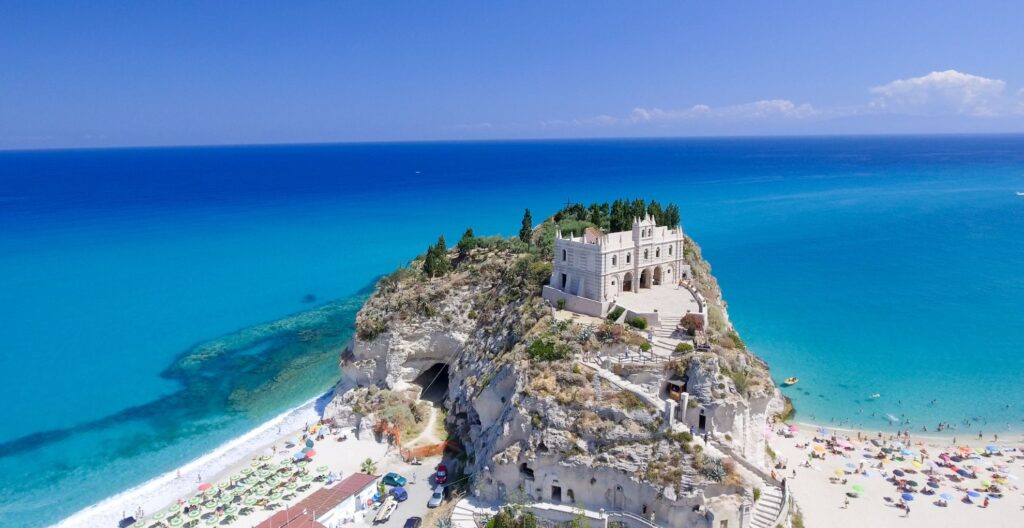
Tropea
Nestled in the southernmost tip of the Italian peninsula, Calabria is a treasure trove of natural beauty, rich history, and mouth-watering cuisine. This hidden gem awaits travelers who are eager to uncover the secrets of this lesser-known region. From its breathtaking landscapes and charming villages to its diverse culinary traditions, Calabria offers a unique and unforgettable experience. In this article, we will guide you through the wonders of Calabrian nature, culture, and cuisine, providing you with an insider’s perspective on the must-see attractions and gastronomic delights that this beautiful region has to offer.
The Sea and Beaches of Calabria: Natural Paradises of Sand and Crystal Clear Water
Calabria is a sun-kissed region, surrounded by the sea on three sides, and boasts some of Italy’s most beautiful beaches. The Calabrian coastline stretches for over 800 kilometers and offers a wide variety of marine landscapes, ranging from fine white sandy beaches to striking cliffs overlooking the sea. The Costa degli Dei, located along the Tyrrhenian coast, is famous for its crystal-clear waters and enchanting beaches, such as Tropea and Capo Vaticano. The Costa Viola, with its rocky cliffs and small hidden bays, is also a must-visit destination for sea lovers.
The beaches of the Ionian coast, such as Soverato and Roccella Jonica, also offer breathtaking panoramas and turquoise waters perfect for swimming and water sports. Finally, the southern Ionian coast is characterized by the striking sand dunes of Le Castella and the Capo Rizzuto Nature Reserve, a protected area that hosts unique biodiversity.
The exceptional quality of Calabria’s waters has also been recognized by the Blue Flag, a prestigious international award that rewards the cleanest and most sustainable beach resorts. With its pristine beaches, spectacular panoramas, and numerous recreational activities available, the sea of Calabria is a true paradise for lovers of sun, sand, and maritime adventures.
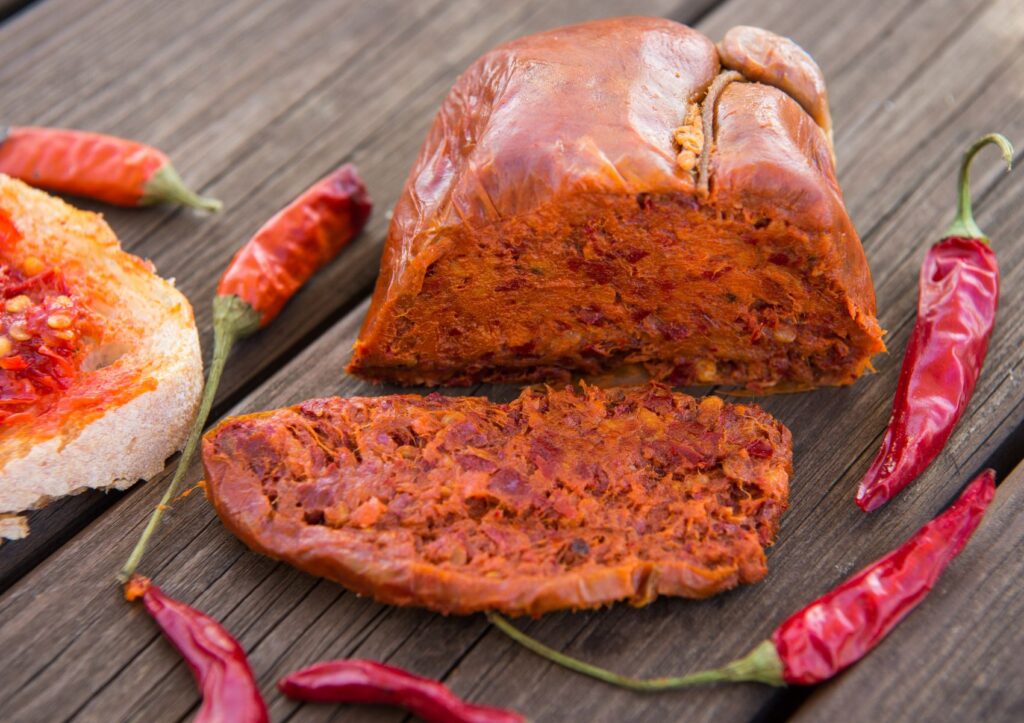
‘Nduja
The Vibrant Culinary Scene
Calabria’s cuisine is as diverse as its landscape, with no uniformity across its five provinces. This diversity stems from a lack of unity in language and ethnicity, reflected in dishes such as pasta ca muddica e alici, eggplant parmigiana, and stockfish, which vary in preparation across the region. Preserved foods, like salted anchovies, cured pork (e.g., ‘nduja and soppressata), cheeses, pickled vegetables, and sun-dried tomatoes, play a significant role in Calabrese cuisine. The use of local vegetables, such as eggplants, tomatoes, peppers, red onions, lettuce, broccoli, and legumes, is also prominent. Bread and homemade pasta made from durum wheat are central to many dishes, often accompanied by various types of chili peppers.
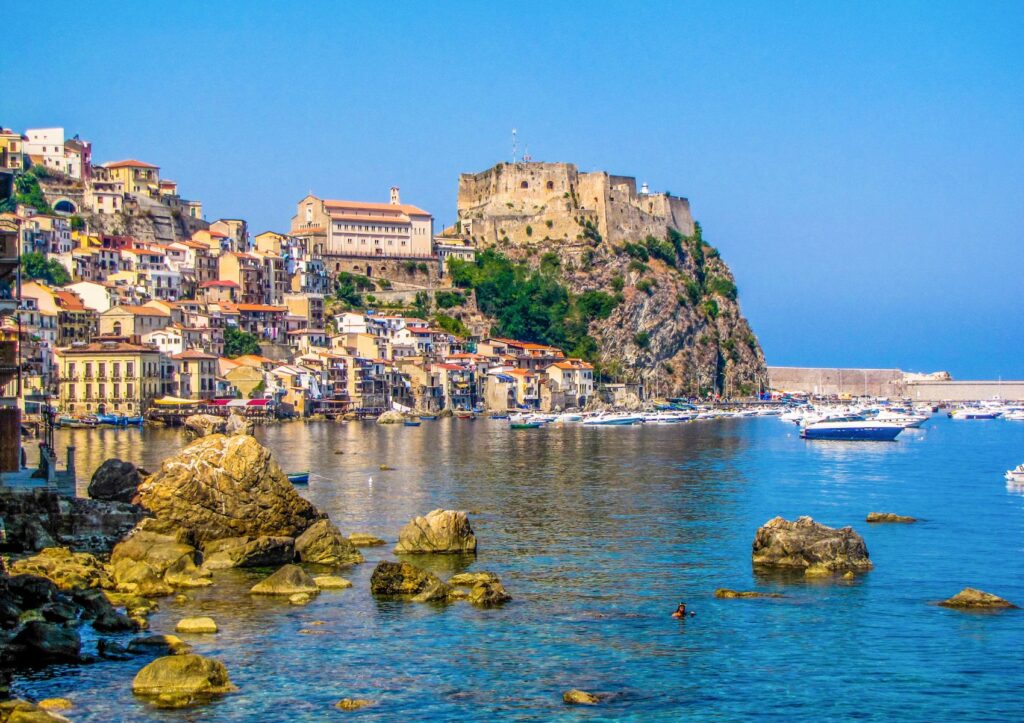
Scilla
Charming Villages and Cultural Riches
Calabria boasts numerous picturesque villages, each with its own unique charm and cultural heritage. Key sites include the ancient city of Crotone, home to the National Archaeological Museum and the archaeological park of Capo Colonna, where visitors can explore the transition from the Greek to Roman era. The hauntingly beautiful ghost town of Pentedattilo, perched on the rocky Mount Calvary, offers a glimpse into the region’s mysterious past. In Stilo, the birthplace of philosopher Tommaso Campanella, visitors can wander through the perfectly preserved medieval town center and the Byzantine settlement of Cattolica di Stilo.
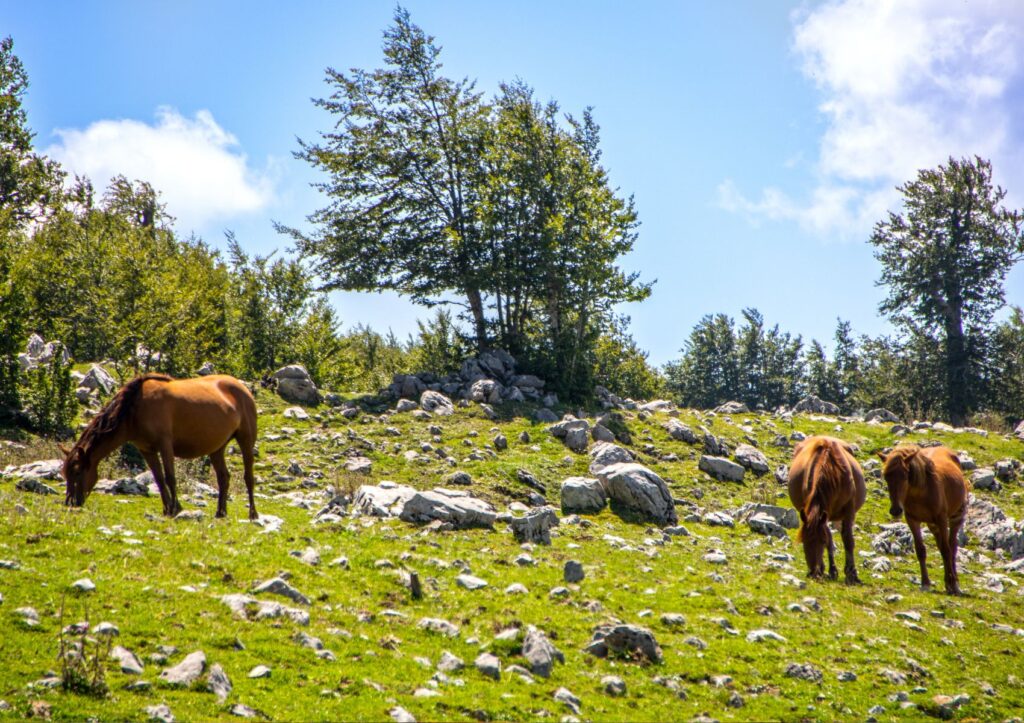
Wild horses in Pollino National Park
Calabria’s Stunning Natural Landscapes
Calabria’s diverse landscapes offer a wealth of outdoor activities for nature lovers. The Pollino National Park features attractions such as the Gole del Raganello, Valle del Fiume Lao, and Valle del Fiume Argentino, where visitors can enjoy rafting, mountain biking, rock climbing, and spelunking. The Sila Natural Park, spanning the provinces of Catanzaro, Cosenza, and Crotone, provides a serene escape amidst its unique flora and fauna. Coastal gems like Tropea and San Nicola Arcella boast spectacular views and crystal-clear waters, perfect for a relaxing beach getaway.
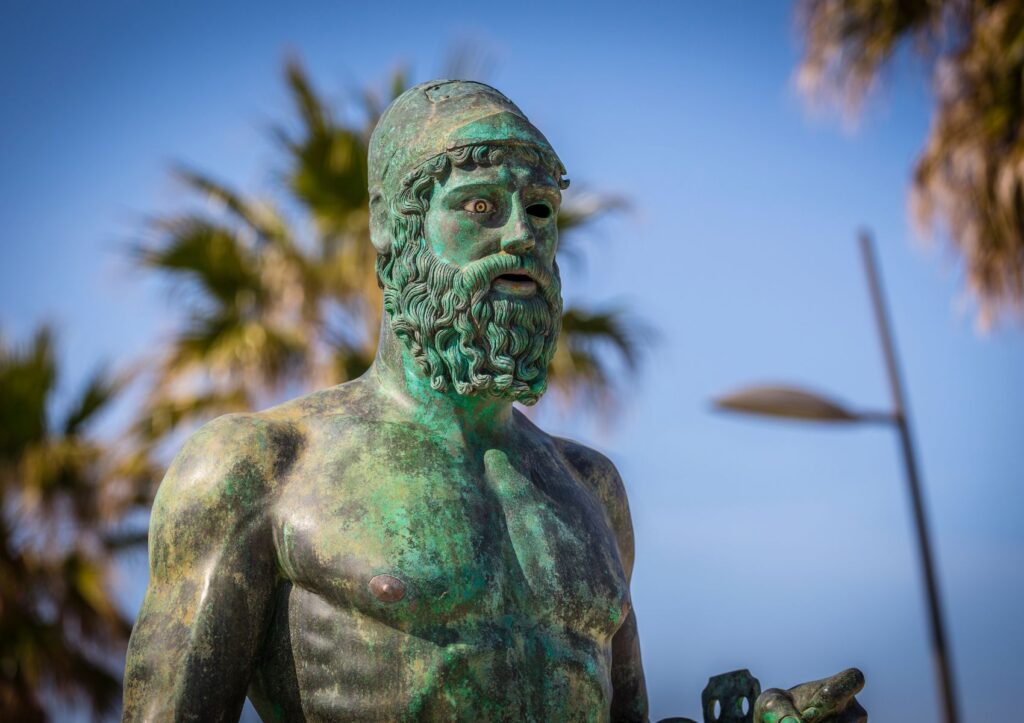
Bronzi di Riace.
Statue A, “the young”
Historical Treasures and Archaeological Sites
Calabria’s rich history is evident in its wealth of archaeological sites and historical landmarks. The Riace Bronzes, housed in the National Archaeological Museum of Reggio Calabria, are a testament to the region’s ancient artistic heritage. The archaeological park of Scolacium in Borgia invites visitors to travel back in time and explore the remains of the Greek colony Skylletion and the Roman Scolacium. For a glimpse into Calabria’s medieval past, the Aragonese fortress of Le Castella in Isola di Capo Rizzuto offers an impressive sight, set on a small strip of land connecting it to the mainland.
With its stunning landscapes, charming villages, rich culinary traditions, and fascinating history, Calabria is an Italian gem waiting to be explored. Don’t miss the chance to experience the warmth and hospitality of this captivating region.
